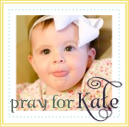Until today I had never heard of infant potty training the technical term is "elimination communication" or "natural infant hygiene." Infant potty training is the practice of introducing your baby to the toilet or potty at a very early age —usually between birth and 4 months.
Now, I have to admit this is the most insane thing to me, I cannot imagine trying to potty train my month old, good lord- she is only 5 months old. She is learning new things every day, do we really have to throw the potty into that mix?
Parents who do this usually do this to avoid diapers completely by racing their baby to the nearest bathroom whenever they anticipate a poop or pee. Others use diapers on and off. By 18 months, in most cases, their children have "graduated" — that is, they know when they have to use the toilet and get themselves there successfully.
Just a fun fact- the average baby boy in the United States gives up diapers at 39 months and the average girl at 36 months, according to a 2001 study by the Medical College of Wisconsin. (It typically takes eight to ten months for a child to go from complete reliance on diapers to being fully potty trained, the study found.)
While the notion of potty training a very young infant seems radical to many American parents, it's not a new idea. Before 1950, most children in the United States were toilet trained by 18 months. And today, most African, Asian, and European babies are trained well before their second birthday. The change in views is most likely from the invention of disposable diapers.
People claim that infant potty training strengthens the bond between parent and child because as a parent you are learning your child's cues and learning to be in tune with your child's needs. People claim that learning their bathroom cues is just as easy as learning their cues for being sleepy or hungry.
Now for everyone out there that is wondering how you can get started here are some basic ideas:
• Watch your baby and get to know their elimination patterns. When and how often does your baby go to the bathroom? Does he always go at a particular time of day — right after waking up, for example? Does he make any particular noises, gestures, or expressions when he has to go?
• When your baby makes one of his typical elimination signs, hold him gently over a toilet, a potty, or even a bucket or pot, which may better suit his tiny size.
• While he's relieving himself, make a noise that your baby will learn to associate with elimination (many parents use ssssss or some other water like sound; others use a word or phrase like "go potty").
• Repeat this sound or phrase whenever you see that your baby has to go, and also while he's going, so he'll learn to recognize it as a signal and connect his own impulses with the act of using the potty.
• When an accident happens, be matter-of-fact about it and stay relaxed. Advocate and mother of five Parise says your attitude helps your child stay relaxed about the process, too.
• During the nighttime, keep a potty right by the bed and put your baby on it before nursing or if he's restless during the night. Some advocates say that babies rarely pee or poop during a deep sleep and will usually become restless or give some sort of sign sufficient to wake a parent when they need to go — assuming that you're co-sleeping. (Other advocates say that using diapers at night is fine. Even self-proclaimed infant potty training "evangelist" Lynch admits, "In our house, sleep trumps pee.") If you opt to put your baby down sans diaper, place him on a waterproof mattress pad in case of an accident.
So I have thrown the idea out there- do what you want with it, I have to admit that I would never do this- I feel there is a reason that diapers were invented and I have much better things to do with my time then hold my child over a toilet ten times a day. I would much rather be cuddling with my baby or taking a walk with them then be hanging out in the bathroom with my child.
Crossroads
10 years ago







1 comment:
Hi! My name is Elizabeth Parise, the "Parise" mentioned in this post. I now have 6 children. I have practiced Elimination Communication (EC), also known as Infant Potty Training since birth with the youngest 3. In spite of the name "Infant Potty Training", it really isn't about potty training at all. It is just an alternative to full-time diapering. When you stop thinking of it as "potty training", it really helps it seem less daunting. It is something that can even be practiced part-time, or even just occasionally. It can also be done while using diapers. I would suggest trying it before dismissing it.I never found it so time consuming that I didn't have time for things like taking walks, cuddling, playing, etc. I actually found it to be less time consuming than changing diapers. Anyway, in the end you may find that it isn't right for you but I would at least give it a try. You never know, you may end up enjoying it and I'm sure your daughter will too.
Post a Comment